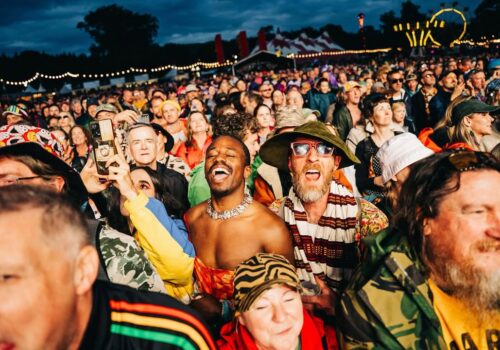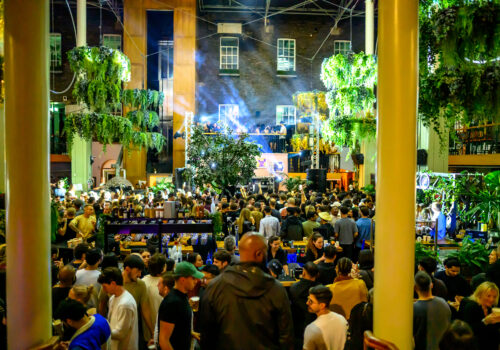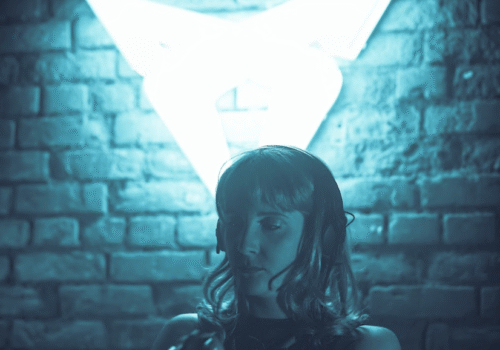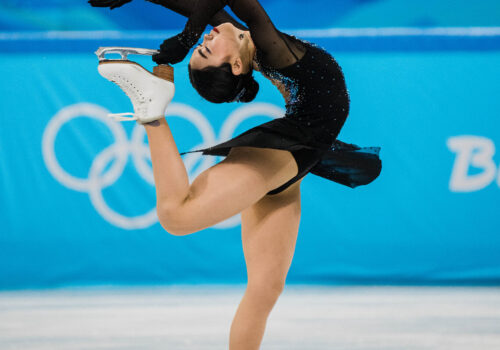Aminé has his own metric of success
Words: Hannah O’Connell
Photography: Ellius Grace
Styling: Michael O’Connor
Make-up: Lisa Redmond
“I want to be known for my music and anything creative I put out,” this is the answer to the first question put to Aminé as he sits opposite, hood up and slightly slumped in a chair, tired from the previous night’s show in Glasgow and the subsequent six-hour ferry from Scotland to Dublin. Hannah O’Connell interviews the Portland artist for the cover of Issue 006.
I asked why he hadn’t done many print interviews. He reminds me that he hasn’t done many interviews at all. My question was a bit of an icebreaker, but I was curious as to how, with a jam-packed schedule and a presumed propensity for turning down requests, I found myself sitting opposite one of the biggest rappers in the world, who would after our chat stick around for a three-hour photoshoot for his first ever cover. Let’s put it down to fate.
Aminé is quite a private person. His favourite artists, Frank Ocean and André 3000 are similarly mysterious and he feels their silence has allowed fans to clearly develop opinions on their music, rather than being impacted their celebrity. He’d welcome the same from his following.
He certainly doesn’t give off the ‘huge celebrity’ vibe you may expect him to. Sitting in a room with the Portland native feels closer to chilling with a friend than being in the presence of a platinum-selling artist. His fame seems more like a consequence, than a desire, but it’s definitely a downside to his chosen career. While he loves his job, and tells me it hardly feels like work at all, Aminé laughs as he reveals that his coping mechanism to being noticed these days is to try and stay indoors. Then more seriously adds, “I definitely go out less”.
“My head’s always on swivel now. I have tonnes of anxiety. Even if there aren’t fans around I’m just always looking, because you just never know when someone is going to pop out and pull out their phone. Especially when you’re just eating food, it’s the most annoying thing.
“For me, I don’t hate fame. I hate when people say that because there are positives to it, your music is bigger, but there are pros and cons to everything.”
While Aminé never chased fame, he always had high expectations for his creative output. Growing up in Portland, a predominantly white state (he says it’s 90 per cent and isn’t far off) he had his sights outside his hometown. The City of Roses has a deep history with rock and indie music, meaning he was one of the first rappers to make significant noise from the state, but he never felt a responsibility to represent Portland on the world stage. He didn’t set out to be the best artist from Portland, he just set out to be the best.
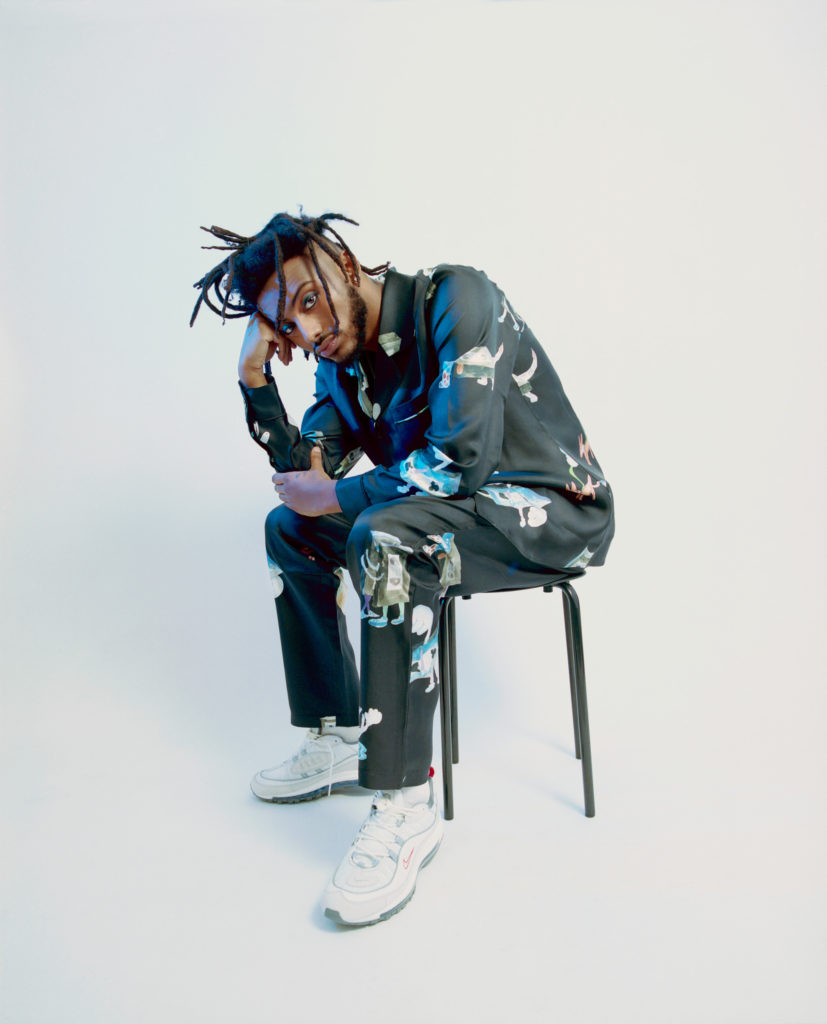
“I was trying to make music that was big everywhere. I wasn’t trying to just be liked by my city, I didn’t see the benefit in that.”
“No one in Portland, when I was coming up, gave a fuck about the kind of music I made. I was doing shows in venues that had like 30 people. No one gave a fuck! Not until you make it big and now they’ll claim you.”
“For me, I don’t hate fame. I hate when people say that because there are positives to it, your music is bigger, but there are pros and cons to everything.”
Aminé
Having just turned 25, Aminé’s top five most-played tracks on Spotify have racked up over 740 million streams. ‘Reel It In’ has just been certified platinum and his YouTube figures are up in the multi millions. What’s even more impressive is that all this started out as a joke. Just a bit of fun to pass the time in school. He and his friends would make diss tracks about other high schools, rapping over beats they found on YouTube, but for Aminé something stuck. After school ended he missed creating, so in the privacy of his bedroom he taught himself how to produce and started writing songs.
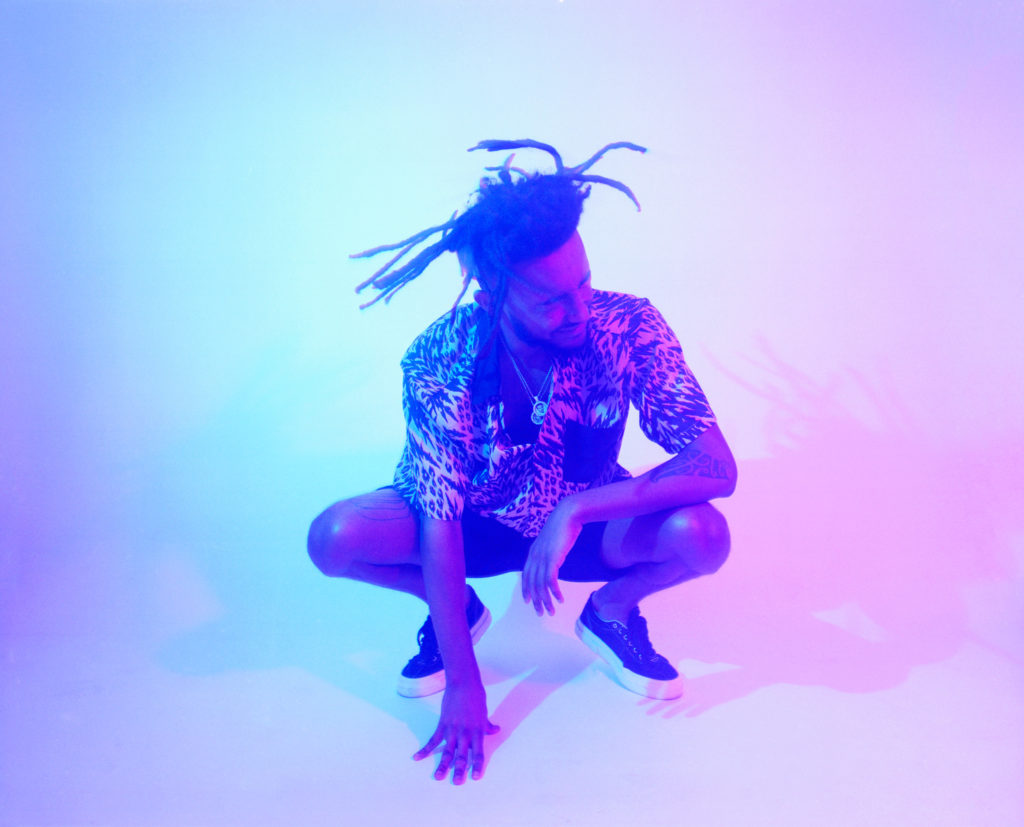
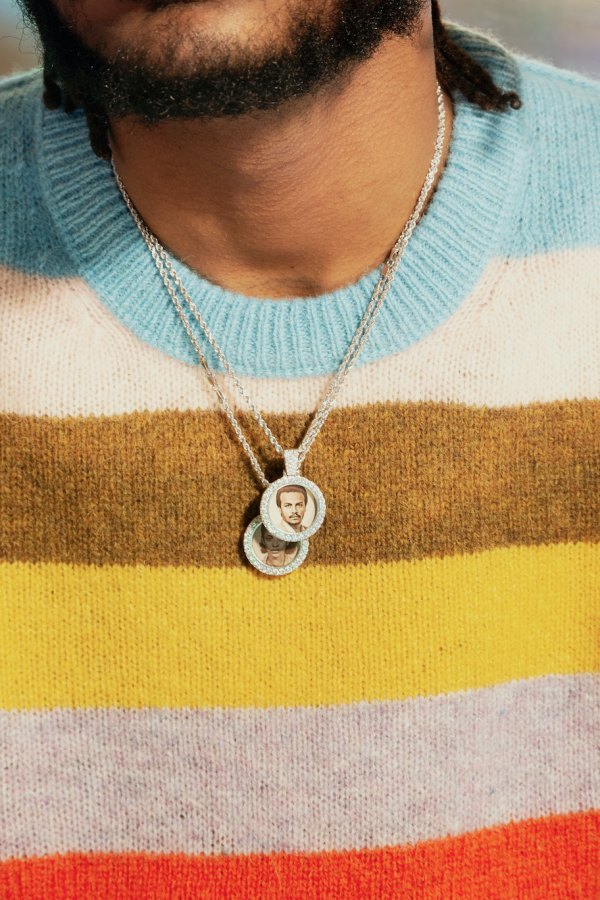
Two of the main reasons Aminé kept music close to his chest were his strict African parents. Immigrants from Ethiopia and Eritrea who relocated to Portland in the 1990s and to whom school was no laughing matter. He went to college to please them, coming away with a degree in Marketing and Advertising, but his desire to be a full time recording artist lived on.
“Throughout college I didn’t really go to parties,” he tells me. “I didn’t really have that much fun at all for the four years I was there. I was really just going to class. College was very depressing, not a fun time.”
Aminé was a good kid. His parents used to ask his sister why she couldn’t be more like him. Even in his late teens and early adulthood, when most students have their wild phase, he kept his head down. In fact, he only recently started smoking weed.
An interesting admission. I find myself presuming my favourite artists have always smoked, but some start at 24. “I never smoked growing up and then back in June I just started. It helps my anxiety. I’m super calm when I smoke. I love it. It’s like I don’t care about anything. It’s kind of great. After a show I’ll definitely smoke a little joint and just go to sleep.”
Back to before he even had shows to play, Aminé was sitting in those lectures halls, dreaming about what could be. How to make both his worlds work. After classes he’d head for the college’s unlocked music rooms and record for hours. Only his two best friends knew what he was doing.
One point five albums in and the plan is working, but despite his astronomical success Aminé hasn’t lost any of the qualities instilled in him as a kid. He’s soft-spoken, chatty and polite, and tells me through a smile, when I ask him if the college graduate ever predicted this level of success, that he’s still not where he wants to be.
“You know what’s crazy though? I don’t even know how many streams I have on songs. I don’t look at that. I mean sometimes I cave, I’m not perfect. I’m not saying I’m never looking at things, but I really try my best to not look at numbers, because you just get obsessed with wanting to be big. And I do want to be big but not in a way where it makes me go mental.”
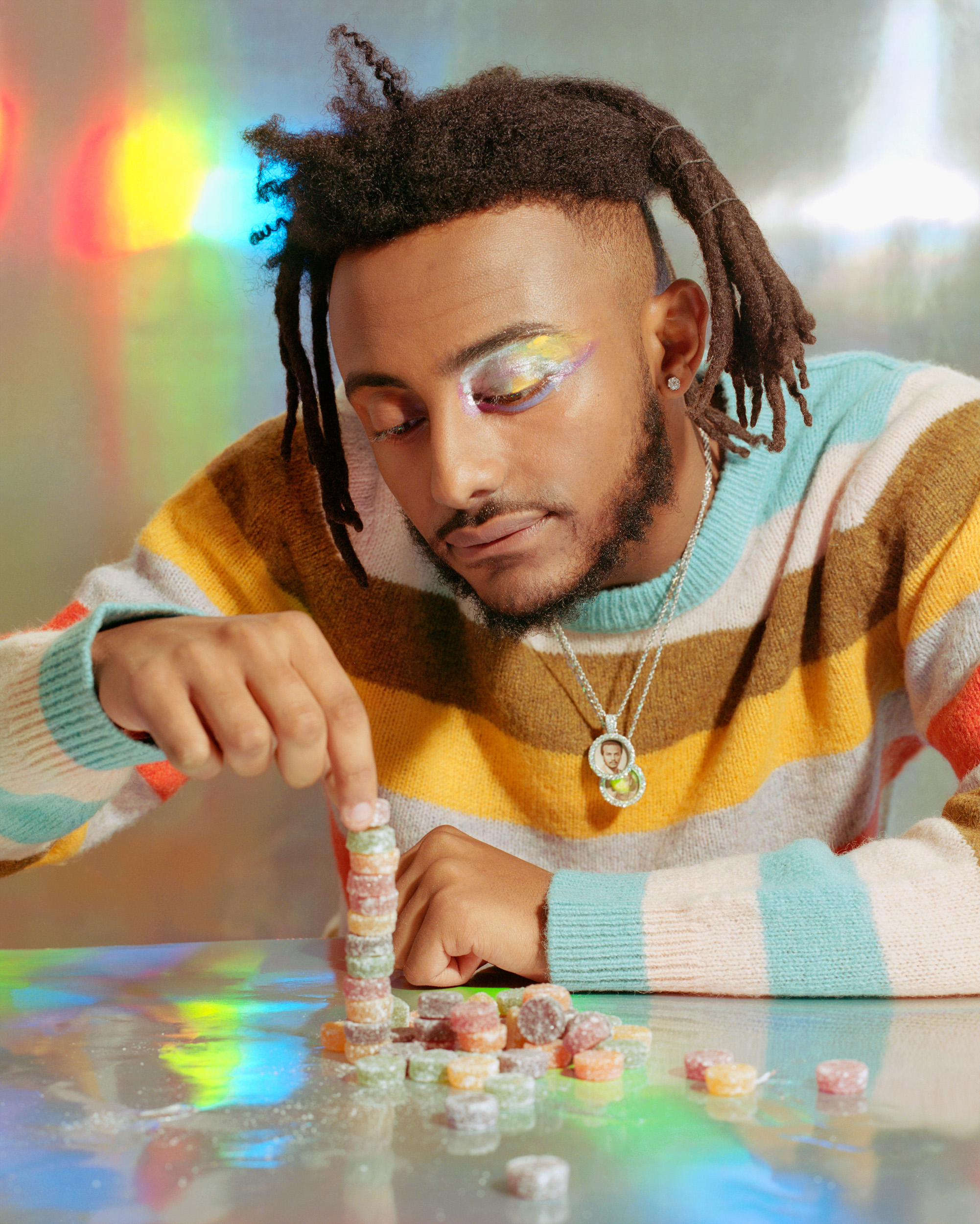
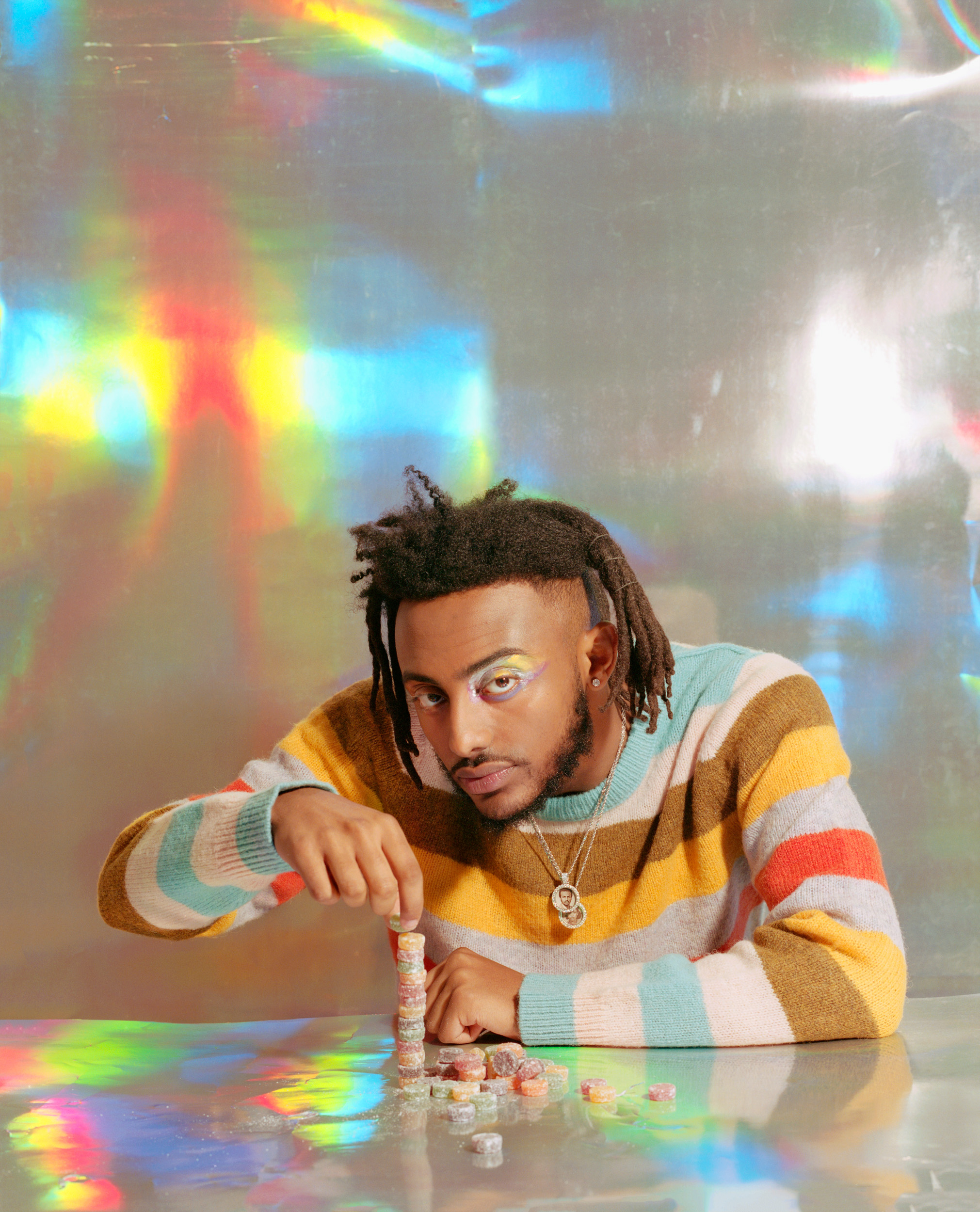
You know what’s crazy though? I don’t even know how many streams I have on songs. I don’t look at that.
Aminé
This is a practice that Aminé has honed over time. When ‘Good For You’ came out in the summer of 2017 he couldn’t help but check its reception on social media. It was his debut record after all.
“As soon as the album came out we were all on Twitter, like, ‘Oh my god, this is the first album’. We were excited and of course there’s a lot of positivity, but I’ve learned from people like Syd [The Internet], and watching Chris Rock interviews and stuff like that… The negative stuff is, of course, not good for your mental, but even the positive stuff is not good for your mental.”
“A bunch of people telling me they love me, saying they think I’m great and praising me is not good for my mental health or for me writing music in the future. Period.”
We speak about his writing process and I ask if there are any topics he chooses to keep out of his lyrics. He tells me he’s very honest, but there are just somethings you can’t say. The 2019 sensitivity factor, as he refers to it, compared to how people reacted 10 years ago is “very, very different.”
“Fans aren’t even just fans anymore. They’re like critique masters,” Aminé laughs.
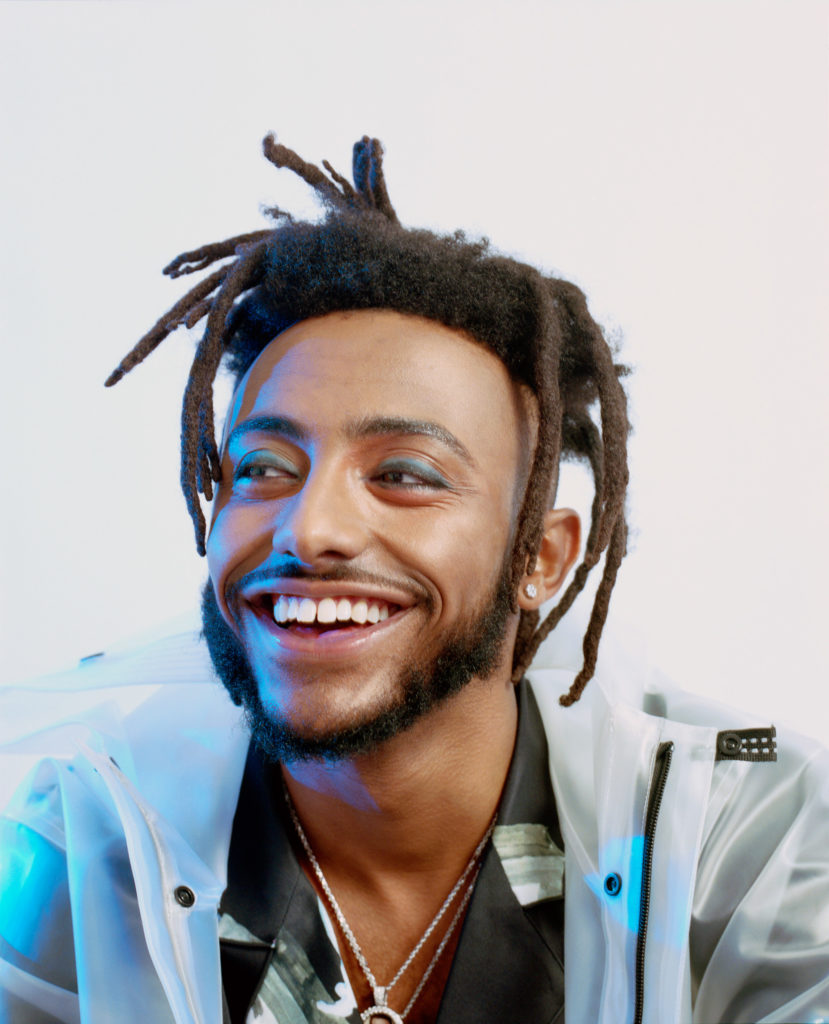
“I put out a song and everyone is going to decode my lyrics. I said this thing in ‘Wedding Crashers’, ‘The girl of my dreams just became a girl and well, we can talk about that later’. When I said that I meant that the girl of my dreams is just a girl now, just a regular girl to me. As in, it was just like a slight flex. Whatever you call it. It was just a play on words and so many of these homophobic men go online saying, ‘Yo, are you talking about transgender?’ and I was just like, ‘Jesus Christ’.”
“It just depressed me in a way. First of all, if that’s what I was really into then that’s fine. That’s my business, but second, that’s not what I meant. Fans these days look so hard into lyrics and it’s like, ‘Dude, it’s just not that deep’.”
That fan analysis carries over into Aminé’s visual output. Take the video for ‘Campfire’ where he and Nathaniel Ritchie of Injury Reserve don pink and green wigs, for no reason other than Aminé liked the colours. They’re never referred to or acknowledged in the video, making the three-and-a- half-minute clip even more hilarious, but that didn’t stop loyal followers trying to decode some deeper reasoning behind the colour scheme.
A bunch of people telling me they love me, saying they think I’m great and praising me is not good for my mental health or for me writing music in the future. Period.
Aminé
Music videos are of utmost importance to Aminé. He tells me that there is no way he will ever be cool with putting out an ‘ok’ video. All of his visuals to date will give you a taste for the standard he intends to upkeep and while everyone from his parents to his label will tell him to chill, he’s not just going to.
“I just like to do everything. The people at my label are like Adam [Aminé’s real name, Adam Daniel] we can hire people for you, please chill! But for me it’s hard to let my baby go into somebody else’s hands. I will always be a part of my videos, hands on, no one will touch my videos without me there. I even directed the ‘Reel It In’ and ‘Blackjack’ videos with Jack Begret, he’s one of my good friends now. He did a lot of Kendrick’s videos. He’s somebody that I trust. We directed the videos together and I have never done that.”
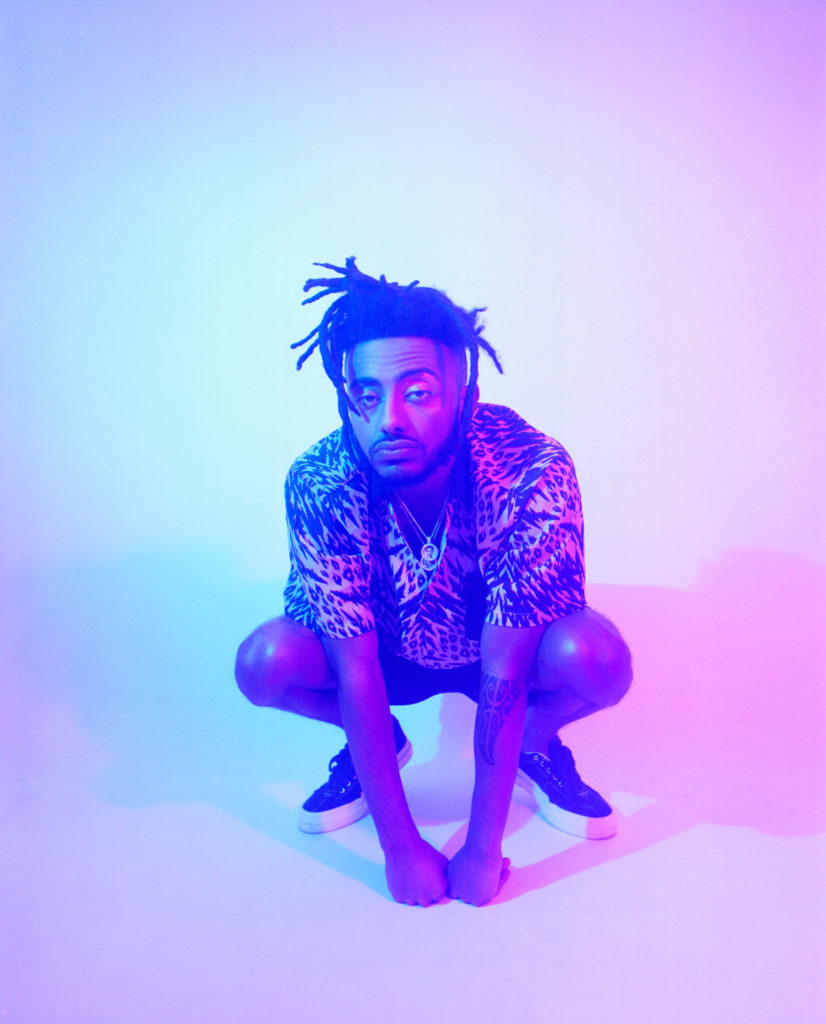
There are some common threads running through the Aminé visual output. Firstly, humour. In particular, satire. He’s flipping the rap stereotype in ‘Reel It In’ and we chat about the strength and fitness of dancers in that video. Twerking is a skill! Secondly, and more often than not, his videos will include a skit or at least some dialogue, and there’s a reason for this. Aminé is using them as audition tapes. He hopes his portfolio will enable a jump into film and TV in the future, and the wheels may already be in motion.
Back in January Jack Black posted a reaction video to the ‘School of Rock’ inspired ‘Blackjack’ video, a moment Amine recalls as the most surreal of his career to-date.
“As a black artist it’s hard to get into the movie world. Period. It’s very hard for African American movie directors, or writers, or producers, or executives, whatever it is. To get that kind of nod from a very white, popular male in Hollywood who’s positive and non-problematic… I’ve had that idea for a long time, but the fact that like Jack Black saw it and said let’s do it, that’s a big deal for me.”
That idea is a ‘School of Rock’ remake, ‘School of Rap’ and the timing couldn’t be any more perfect. As Aminé puts it, “Rap is the new rock”.
“Literally 13-year-olds in white suburbia only want to listen to ‘hood music.”

While movie making will likely play a role in Aminé’s future, he doesn’t like the idea of doing too many things at once. Those ‘Photographer, Journalist, Rapper, Director’ Instagram bios make him cringe. He sees it as a problem with his generation, that everyone wants to do everything.
“It’s like dude pick one thing,” he says, exasperated.
So for now Aminé is all about the music. Album two is on the way, but not finished just yet. He doesn’t like to rush things, so in the background he’s slowly building relation- ships with his favourite artists. Making sure that when the time comes for features, he’s in the studio with the best.
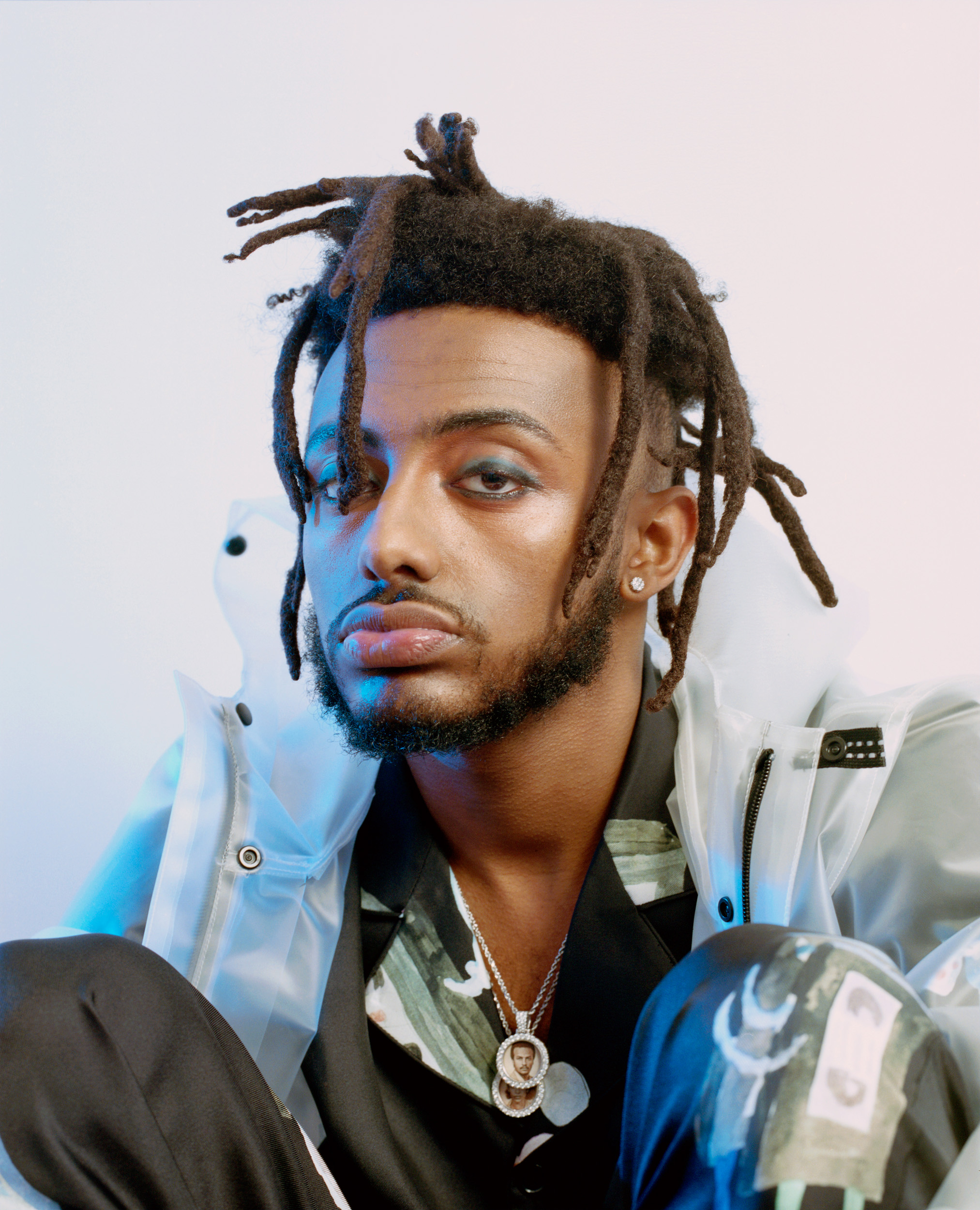
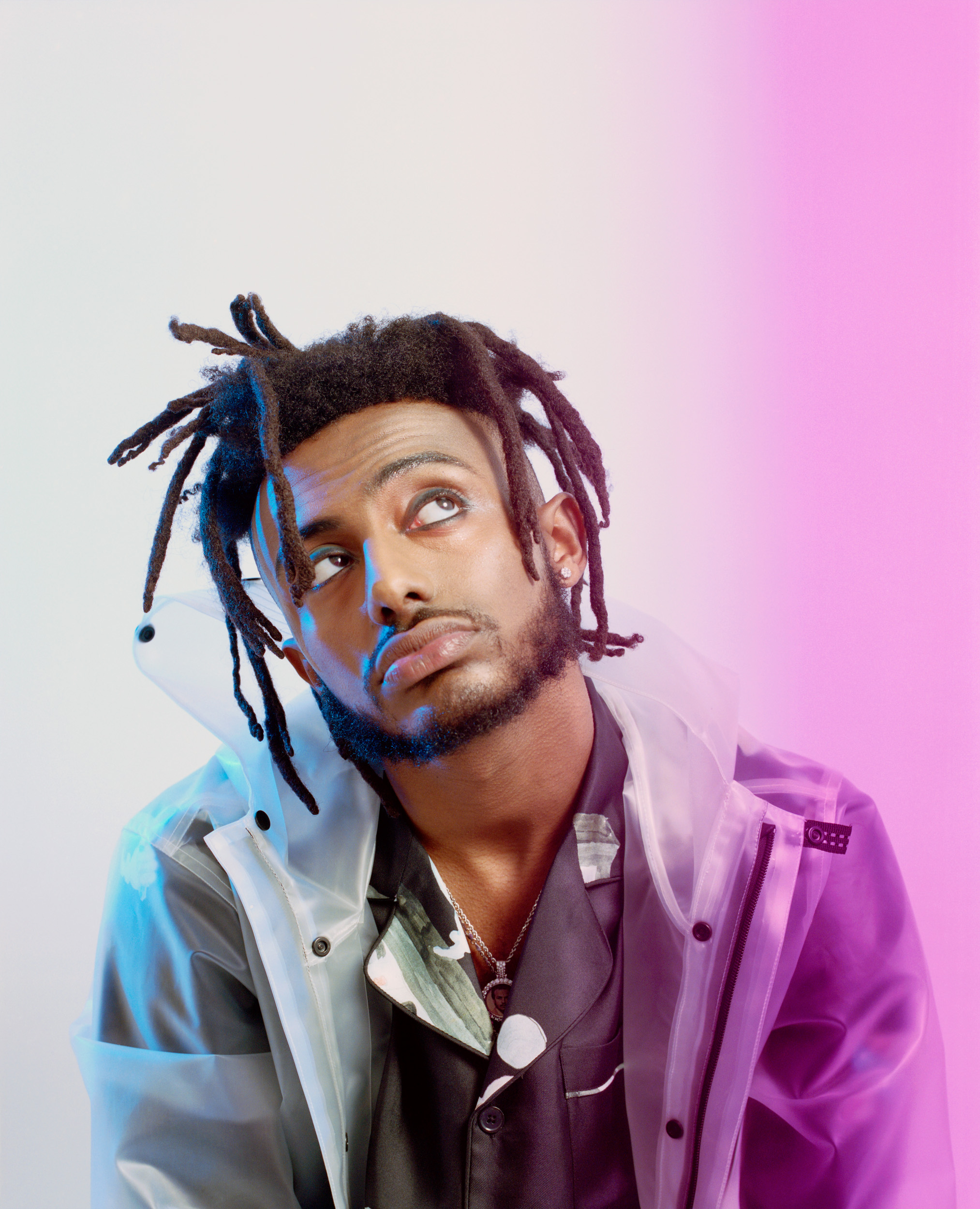
‘Good For You’ was a serious debut with Offset, Charlie Wilson, Kehlani, Ty Dolla Sign and Nelly all lending a verse. Aminé cut his teeth on that record, admitting that when he started making the album he didn’t understand how the industry worked. Of the five features, he was only in the room with Kehlani and Wilson. His label organised the rest, and while that’s just how it goes with first albums, this time around he’s got rules.
“Every feature that’s on it I need to know the artists and I have to really be there. I’m a fan of people like Kanye West. When he was making ‘My Beautiful Dark Twisted Fantasy’ it was rules set in the studio. No tweeting, no Instagram, it was just dope.”
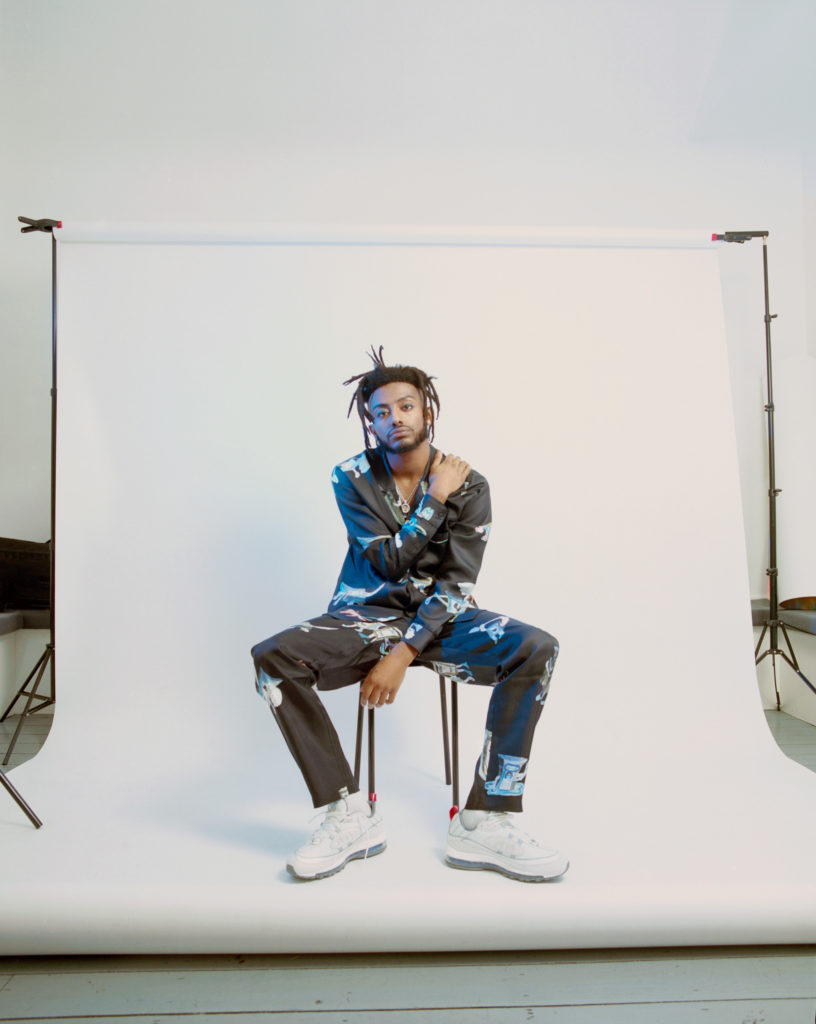
Aminé is taking his sophomore release very seriously. He’s already been working hard on it for over a year now and when his European tour wraps it’s straight back to the studio. He doesn’t seem to switch off much and even when he does, he’s creating. In 2018 his downtime involved firing out an ‘EPLPMixtapeAlbum’ in the form of ‘ONEPOINTFIVE’ and succeeding to a level that some artists will only ever dream of.
“I made ‘Reel It In’ in 15 or 20 minutes, I made Black- jack in 15 minutes,” he tells me as casually.
“These songs were quick, and we wanted to make them fun. I made these songs as an exercise for my brain because I had been working on my second album for about a year before that. We’d been working on it, working on it, working on it, and I was just so tired from taking this music thing so seriously that I wanted to make just ratchet, fun music and that’s what we made.”
Ratchet, fun music, maybe, but Aminé has secured his name as one of the biggest in the game. Who knows what he’s going to do next? It’s looking like we’ll get album number two pretty soon, maybe we’ll get a blockbuster. Either way, we’re here for it. As are the legion of Aminé die-hards, ready and waiting to support their rap god in the creative direction of his choosing. Just don’t pop out and pull a phone on him, especially when he’s eating. Speaking of eating, Aminé’s Nando’s has arrived, and that’s my cue to leave.
